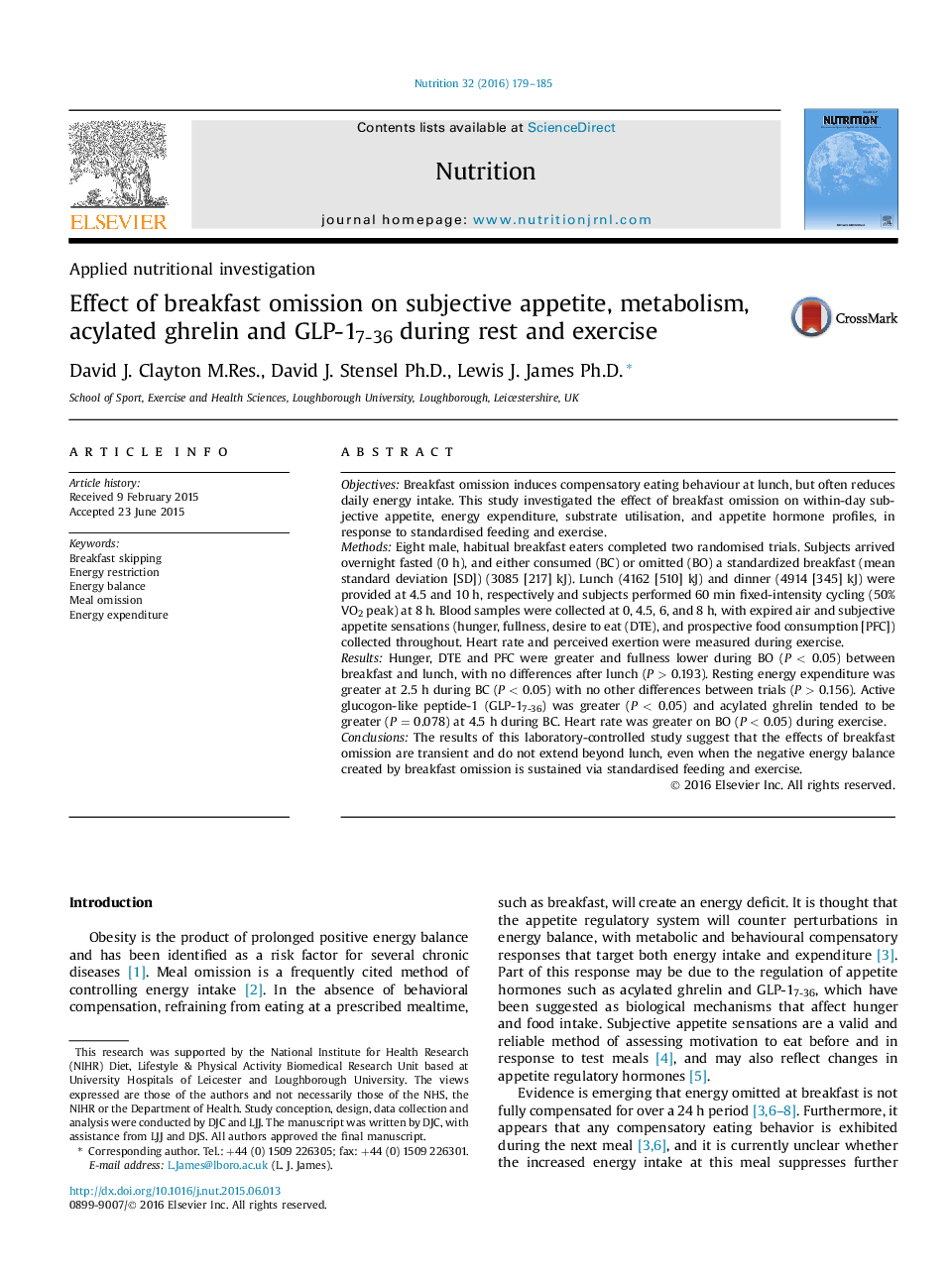| کد مقاله | کد نشریه | سال انتشار | مقاله انگلیسی | نسخه تمام متن |
|---|---|---|---|---|
| 6089399 | 1208543 | 2016 | 7 صفحه PDF | دانلود رایگان |

- Appetite responses to breakfast omission/consumption were compared.
- Lunch and dinner intake were standardized.
- Subjective appetite was not different between trials after lunch.
- GLP-17-36 and acylated ghrelin were not different between trials after lunch.
- The effects of breakfast omission appear transient and do not extend beyond lunch.
ObjectivesBreakfast omission induces compensatory eating behaviour at lunch, but often reduces daily energy intake. This study investigated the effect of breakfast omission on within-day subjective appetite, energy expenditure, substrate utilisation, and appetite hormone profiles, in response to standardised feeding and exercise.MethodsEight male, habitual breakfast eaters completed two randomised trials. Subjects arrived overnight fasted (0Â h), and either consumed (BC) or omitted (BO) a standardized breakfast (mean standard deviation [SD]) (3085 [217] kJ). Lunch (4162 [510] kJ) and dinner (4914 [345] kJ) were provided at 4.5 and 10Â h, respectively and subjects performed 60Â min fixed-intensity cycling (50% VO2 peak) at 8Â h. Blood samples were collected at 0, 4.5, 6, and 8Â h, with expired air and subjective appetite sensations (hunger, fullness, desire to eat (DTE), and prospective food consumption [PFC]) collected throughout. Heart rate and perceived exertion were measured during exercise.ResultsHunger, DTE and PFC were greater and fullness lower during BO (PÂ <Â 0.05) between breakfast and lunch, with no differences after lunch (PÂ >Â 0.193). Resting energy expenditure was greater at 2.5Â h during BC (PÂ <Â 0.05) with no other differences between trials (PÂ >Â 0.156). Active glucogon-like peptide-1 (GLP-17-36) was greater (PÂ <Â 0.05) and acylated ghrelin tended to be greater (PÂ =Â 0.078) at 4.5Â h during BC. Heart rate was greater on BO (PÂ <Â 0.05) during exercise.ConclusionsThe results of this laboratory-controlled study suggest that the effects of breakfast omission are transient and do not extend beyond lunch, even when the negative energy balance created by breakfast omission is sustained via standardised feeding and exercise.
Journal: Nutrition - Volume 32, Issue 2, February 2016, Pages 179-185